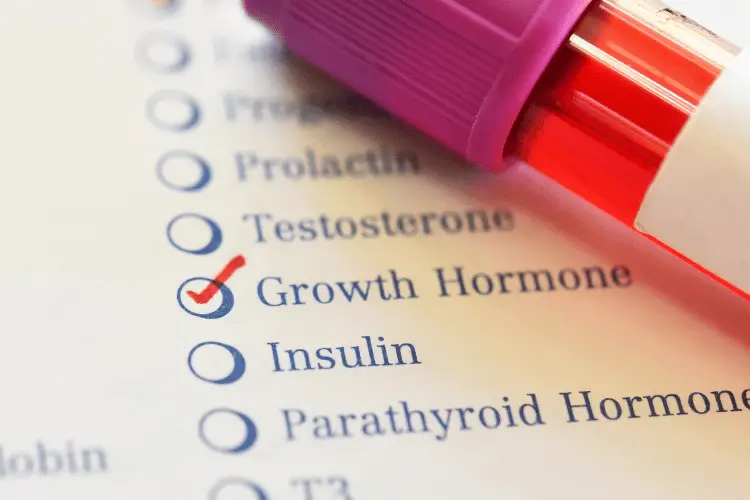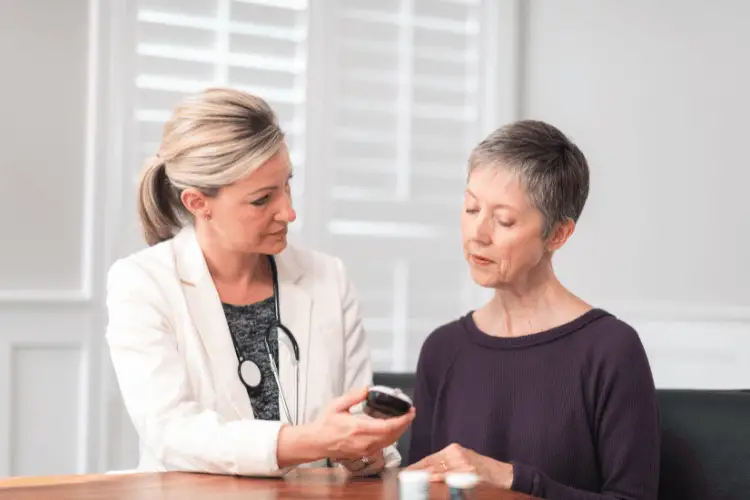Whenever you’re feeling tired, hungry, sleepy, or happy, chances are, a hormone is involved to one degree or another. They’re responsible for all sorts of bodily functions, from regulating your sleeping pattern to controlling your weight.
That said, some may experience deficiencies in hormones. Subsequently, they’ve likely been advised to undergo hormone replacement therapy. These treatments attempt to replicate the body’s natural circadian hormone production.
For instance, you can alleviate sleep imbalance with melatonin supplementation or reduce menopausal symptoms with estrogen pills. Additionally, hormone replacement therapies treat critical conditions such as diabetes, Parkinson’s, and Addison’s disease.
Stick around to learn more about hormone replacement therapy and what playing with your hormones can do to your body.
The Role of Hormones in the Human Body
Hormones are chemical messengers that move through your body’s bloodstream. They’re responsible for natural growth and function. Hormones can also affect your metabolism, reproduction, mood, sleep, and sexual function.
Consequently, they play a critical role in our daily activities and thinking. A minor deficiency or surplus can vastly affect your body’s cell activity. Fortunately, lab tests of bodily fluids can determine your hormone levels to better prescribe your treatment.
Hormones Therapy Options
Taking hormones should always be done in a medically supervised setting. Otherwise, abusing hormonal intake can reap undesirable side effects. Aside from that, here are some hormone replacement therapy options.
- Hormone Replacement Therapy (HRT)
Medical professionals primarily prescribe HRT for women undergoing menopause. During the later stage, estrogen production halts. In turn, it can cause hot flashes and vaginal dryness. HRT for women involves intaking synthetic forms of progesterone and estrogen.
Women may choose to practice HRT after getting a hysterectomy or uterus removal. In this case, specialists advise a low-dose estrogen treatment and comes in various forms, such as pills, patches, or topical formats.
Incorporating HRT assists patients experiencing osteoporosis or loss of bone density from menopause. It also alleviates other common menopause symptoms, such as moodiness, Irritable Bowel Syndrome (IBS), and sleeplessness.
Before taking HRT, you’ll want to understand the risk factors. For instance, over 5 to 10% of women in their first year of undergoing HRT experience fluid retention and breast tenderness. Plus, it can increase your risk of cardiovascular disease and blood clot formation.
- Human Growth Hormone (HGH)
In its natural form, growth hormone production occurs in the brain’s pituitary glands. It’s responsible for your body’s development, whether it’s your muscle growth, height, or bone length.
Our natural growth hormone production reaches its highest stage during puberty before gradually decreasing.

How Can HGH be Used?
Synthetic growth hormones are becoming a widespread option for both ethical and unethical use. In the prior’s case, hormone therapy can help children with impaired height growth. The FDA also prescribes the growth hormone for children afflicted by Turner syndrome and chronic kidney disease.
Medical specialists treat adults with synthetic HGH if they have muscle loss or atrophy from HIV and AIDS or short bowel syndrome.
Meanwhile, some athletes and bodybuilders use HGH to gain muscle strength.
The enlargement in muscle size with HGH supplementation is more likely associated with a growth in connective tissue. In turn, the synthetic hormone doesn’t develop muscle strength.
Effects of HGH
Besides that, taking synthetic HGH, in the long run, can cause acromegaly. The illness causes an irreversible overgrowth of your connective tissue. Consequently, your hands, feet, and face may appear larger than usual. It can also target the skin, making it coarser and hairier.
In addition, the hormone can cause other risk factors to develop. They can include
- Carpal Tunnel Syndrome
- Fluid retention
- Low blood sugar
- High cholesterol levels
- Enlargement of cancerous tumors
- Nerve, joint, and muscle pain
Apart from the unwanted effects of HGH, hormone therapy can reap multiple benefits. It can regulate growth hormones for those deficient in HGH. Subsequently, it can improve exercise capacity, build bone density, and decrease body fat.
- Testosterone Replacement Therapy (TRT)
Testosterone production primarily originates from the male testicles.
The hormone’s processing isn’t limited to males. Ovaries can also make testosterone. Its critical role involves regulating sperm production and allocating fat storage, muscle mass, and bone density. Testosterone can impact mood and mental health as well.
In today’s mass pharmaceutical marketing, TRT has become a rising star. It promises a higher sex drive, high energy levels, and alertness.
Manufacturers primarily advertise the product to older men experiencing low testosterone levels. The deficiency can cause decreased libido, concentration challenges, and increased body fat.
How does TRT Help?
TRT aims to boost energy levels, increase muscle mass, uplift mood, and improve sex quality. The treatment has mixed reviews from men. Over one in ten recipients reported a positive response to the treatment. Meanwhile, the same number of men didn’t feel as much change.
Effects of TRT
A study published, named the Testosterone Trials, tested the efficacy of TRT on 788 men with an average age of 72 years old. The results showcased effects from multiple facets. The aspects with positive changes included sexual, physical, vitality, and bone density function.
Additionally, TRT improved anemia conditions. Meanwhile, cognitive function didn’t improve or degenerate. Besides that, medical professionals have speculated about TRT’s risk factors. For instance, the treatment can worsen sleep apnea, prostate cancer, and blood clot conditions.
Men on a long-term TRT are more likely to develop cardiovascular complications, like strokes and heart attacks.
Anabolic Steroids
As soon as you hear the word “steroids,” pictures of bodybuilders and muscle growth likely come into your head. Anabolic steroids are a form of testosterone therapy. The synthetic hormone is popular in the athletic industry.
Nevertheless, anabolic steroids aren’t all about muscle bulking. Medical specialists may use it on patients experiencing late puberty or a decrease in muscle mass from overarching illnesses. Besides the prescribed practice, anabolic steroids are notoriously misused.
Whether injected, taken orally, or applied topically, the man-made hormone can cause multiple side effects, such as:
- Cardiovascular issues
- Kidney complications
- Increase blood pressure
- Decrease sperm amount
- Testicle shrinkage
Women may experience different effects when abusing anabolic steroids. They can include a deep voice, menstrual cycle changes, and facial hair growth. Aside from that, the hormone replacement can be addictive, even though it doesn’t produce a high.
Studies say that over 32% of anabolic steroid abusers develop dependence. They may experience withdrawal symptoms, like insomnia, fatigue, and decreased sex drive.
What to Consider Before TRT
Before taking the TRT route, you’ll want to assess your health. Ask yourself, “Are these issues coming from my diet and lack of exercise?”
You’ll also want to understand your sex drive issues. They could result from psychological or relationship problems rather than low testosterone levels.
- Thyroid Hormone Replacement Therapy
Thyroid hormones regulate your body’s metabolic function. The butterfly-shaped gland is in front of your neck and is part of the endocrine system.

That said, metabolism is responsible for converting food to energy through a complex process. It also controls your heartbeat’s pace, body heat distribution, and energy efficiency.
Some individuals are deficient in this hormone, in turn, have hypothyroidism. The symptoms can induce excess fatigue, weight gain, cold sensitivity, and slow cognitive function. These patients resort to thyroid hormone replacement therapy to treat their underactive thyroid glands.
Medical personnel typically prescribe pills for this treatment. There’s no one-size-fits-all dosage. Each patient will likely receive an individualized plan to combat their hypothyroidism symptoms and regulate their hormone production. Administering high doses can cause:
- Sleeping difficulties
- Nausea
- Headaches
- Increased heart rate
- Nervousness
- Over sweating
- Fever
- Hydrocortisone Replacement Therapy
Hydrocortisone acts as a hormone replacement therapy for cortisol levels. The latter is your stress hormone.
It functions by increasing glucose or blood sugar levels. Your adrenal glands produce cortisol. That said, medical personnel usually prescribe hydrocortisone for patients with Addison’s disease. The illness causes a drop in cortisol production due to inhibited adrenal glands.
Effects of Hydrocortisone
Medical professionals administer hydrocortisone hormone therapy through tablets. These pills can cause side effects, such as swollen ankles, fatigue, dizziness, and headaches.
Your immune system may weaken, making you more susceptible to infections. The side effects will likely worsen if you abruptly stop taking the pills.
- Glucocorticoid Replacement Therapy
Glucocorticoids originate from the body’s adrenal glands. They’re steroid hormones responsible for protein, fat, and glucose metabolism.
The hormone produces anti-inflammatory and anti-allergic reactions. One of the glucocorticoids found in the body is cortisol. It regulates blood pressure and immune function.
Glucocorticoid replacement is a hormone treatment targeted toward patients with adrenal insufficiency. Nonetheless, this type of treatment is unregulated and requires more clinical trials. Glucocorticoid therapy is unable to follow the body’s natural cortisol rhythm.
Plus, the side effects are detrimental to the body. They can include cardiovascular risk, neurocognitive impairment, fatigue, and sleep disturbances.
- Insulin Replacement Therapy
Insulin is a hormone that allows your body’s cells to absorb sugar and glucose from your blood. The pancreas is responsible for insulin production. It uses beta cells to make the hormone.
Patients with type 1 diabetes have immune systems that attack these beta cells, which hinders their insulin production. Meanwhile, in type 2 diabetes, your cells are unresponsive to insulin. Consequently, the pancreas overproduces the hormone, causing a rise in blood sugar levels.
Insulin replacement therapy aims to balance the body’s insulin production and levels. The intake depends on various factors, such as:
- Whether you have type 1 or type 2 diabetes
- Daily activity
- Meal and work schedule
- Blood sugar level stability
Insulin replacement therapy usually comes in the form of injections. Oral medication won’t be effective since the stomach will break down the hormone before it functions. Apart from syringes, patients can use insulin pens, jet injectors, or external pumps.

- Melatonin Replacement Therapy
Melatonin is a hormone tasked with regulating your sleep patterns. It allows your brain to respond to darkness according to the circadian rhythm. In turn, light at night tends to block your melatonin production.
The hormone is in the brain’s pineal glands. That said, melatonin isn’t essential for sleep. Nevertheless, it plays a crucial role in your sleep quality. For this reason, people struggling with sleep may often resort to melatonin supplements.
Application and Benefits of Melatonin
Melatonin can benefit multiple conditions. Some of which include:
Jet Lag
Two studies concluded that melatonin could be a better alternative to placebo pills to reduce jet lag in 90 westward travelers. Four additional studies found that melatonin benefited 142 eastward travelers in abating jet lag symptoms compared to placebo pills.
Insomnia
A study conducted on insomniac elderly patients tested the efficacy of melatonin supplements for sleep maintenance and initiation. After five experimental periods, the results showcased positive results for the hormone replacement therapy.
A fast-release melatonin treatment improved sleep initiation. Meanwhile, a sustained release dosage enhanced both sleep initiation and maintenance. The study found no tolerance development of the treatment. After the trial’s end, the insomniac patients’ sleep pattern quality declined.
Side Effects of Melatonin
Melatonin replacement therapy is safe, for the most part. It may cause some side effects, such as:
- Daytime drowsiness
- Headaches
- Dizziness
- Nausea
What to Consider Before taking Melatonin
Before administering melatonin supplements, you’ll want to consider a few factors. For instance, ensure you’re not behind the wheel or operating heavy machinery within five hours of taking the hormone supplement.
If you’re experiencing sleep difficulties due to menopause, melatonin may be a viable option. Nonetheless, it’s still unjustified for general use.
Plus, melatonin can interact with other medications, including:
- Medicine that treats seizures
- Treatment that alleviates blood clotting
- Immunosuppressants
- Diabetes medicine
- Birth control
Besides that, you’ll want to explore other options before resorting to melatonin replacement therapy. You can question your sleeping habits. For instance, do you use your phone before sleeping? Is your diet affecting your sleeping patterns?
- Dopamine Replacement Therapy (DRT)
Dopamine is popularly known as the “happy hormone.” It controls your feelings of pleasure, satisfaction, and motivation. On top of that, dopamine is also responsible for executive function and motor control.
The hormone’s production site is in the brain’s ventral tegmental area, hypothalamus, and substantia nigra.
Medical professionals implement dopamine replacement therapy for Parkinson’s patients. These individuals lose brain cells in the substantia nigra part of their brain. Consequently, their dopamine levels deplete.
In turn, the treatment compensates Parkinson’s patients for their lack of dopamine, which improves motor movement restoration. Medical specialists administer the hormone replacement therapy in pill form, such as Levodopa.
Effects of DRT
The medication does hold some side effects, including dyskinesias or involuntary bodily movement. Additionally, the treatment doesn’t heal Parkinson’s other symptoms.
Apart from that, a study conducted on Parkinson’s patients undergoing DRT tested their creative thinking skills. The results didn’t display the predicted increase in convergent and creative thinking.
What Is Hormone Pellet Therapy?
Rather than replacing hormones, hormone pellet therapy is a way of taking hormones. In most cases, medical professionals administer hormones orally, topically, or through injections. The pellets are implanted under the skin to diffuse bioidentical hormones.
These hormones differ from synthetic options since they mimic the molecular structure of naturally occurring hormones. Meanwhile, synthetic hormones have different chemical makeup, but the body absorbs them for the same purpose.
The FDA has yet to approve hormone pellet therapy as a viable treatment for hormone imbalance. Besides that, pellet options are applied to various hormone treatments, such as testosterone and estrogen.
Pellets are less fast-acting than injections. Nevertheless, they usually require fewer consultations with your physician.
Insertion Procedure
The procedure begins when the appointed doctor numbs the skin, particularly around the hip region. Next, they’ll insert one of the hormone pellets under your skin. Then, the doctor will proceed to fasten the incision with stitches or Steri-Strips.
The efficacy of the pellets can last up to three months. One of the benefits of this insertion method is that it provides more control over the hormone dosage.
Tips to Promote Hormone Health
Hormones target your physical and mental well-being. Focusing on these factors can go a long way in improving your hormone health.
Eat Mindfully
- Pick foods that’ll benefit your gut health. Research finds that healthy gut microbes that ferment fiber prevent insulin resistance.
- Introduce more protein to your meals to promote feelings of fullness and prevent Ghrelin hormone production, which is also identified as the “hunger hormone.”
Engage in Exercise
- High-Intensity Interval Training (HIIT), cardio, and strength training are linked to avoiding insulin resistance.
- Exercise boosts testosterone levels, which helps in maintaining muscle mass and strength.
Focus on Mental Health
- Lowering your stress levels with meditative practice can reduce elevated cortisol levels, which can induce high fat and sugar intake.
Final Thoughts
Playing with your hormones doesn’t necessarily imply misuse. Taking additional hormones may lead to a more balanced lifestyle. It can alleviate symptoms of illnesses like diabetes and insomnia.
On the other hand, hormone abuse is also present, especially in the athletic industry. Professional athletes may take growth or steroid hormones to increase muscle strength and mass.
While they may achieve an increase in muscle growth, the long-run side effects will prove detrimental to their bodily function. For this reason, you should always consult a medical professional before considering any form of hormone replacement therapy.


